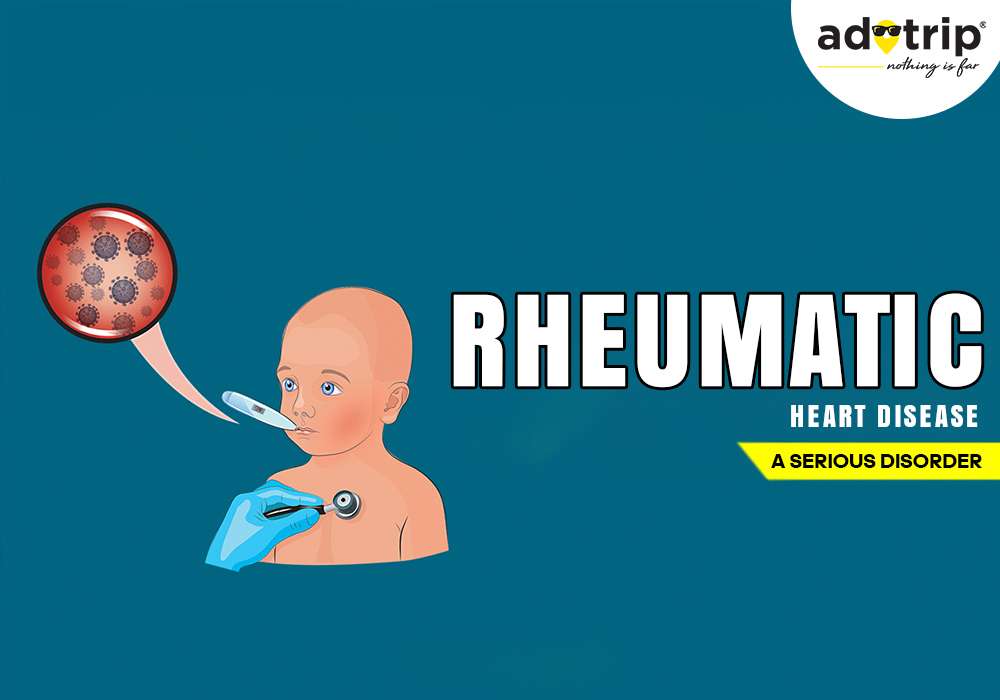
Rheumatic heart disease is a serious disorder that, if ignored, can result in heart failure and cause catastrophic damage to the heart valves. It is brought on by streptococcal pharyngitis, most frequently referred to as strep throat.
The Streptococcus pyogenes bacteria is the common cause of strep throat. The common symptoms include a sore throat, fever, and enlarged lymph nodes. In addition, the bacteria can induce rheumatic fever, resulting in rheumatic heart disease if left untreated.
An inflammatory condition called rheumatic fever can harm the skin, brain, joints, heart, and joints. Children between the ages of 5 and 15 are the ones who are most likely to develop it. In addition, heart failure may result from the disease's potential to harm heart valves permanently.
Uncertainty exists regarding the precise method by which the bacteria induce rheumatic heart disease. However, inflammation and scarring are thought to be caused by the immune system mistakenly attacking the heart valves. The scarring may make the valves stiff, making it difficult for them to open and close appropriately. As a result, many symptoms, such as weariness, shortness of breath, and chest pain, may result.
Several risk factors accompany the occurrence of rheumatic heart disease. They consist of the following:
Rheumatic heart disease is typically diagnosed through physical examination, blood testing, and imaging procedures like echocardiography. Depending on the disease's severity, patients may receive medicine to reduce inflammation and stop future harm to their heart valves. To replace or repair damaged valves, surgery may be required in some circumstances.
The severity of the problem determines the course of treatment for rheumatic heart disease. Treatment for mild cases may not extend beyond taking antibiotics to stop reoccurring strep throat infections. However, medication may be required to relieve inflammation and prevent further harm to the heart valves in more challenging situations. Aspirin, corticosteroids, and nonsteroidal anti-inflammatory medicines (NSAIDs) are some medications that might reduce inflammation and ease symptoms.
In addition to medicine, lifestyle modifications like reducing salt intake, exercising regularly, and quitting smoking may be advised to control the disease. To replace or repair damaged valves, surgery may be required in some circumstances. Because it retains the patient's valve tissue and lowers the risk of problems like blood clots or infections, valve repair is preferred to valve replacement. However, if the valve damage is too serious to be repaired, a replacement valve may be required.
Rheumatic heart disease has a variable prognosis depending on the severity and how quickly it is treated. The future may be bright with early discovery and treatment. On the other hand, the illness can advance and cause problems like heart failure, stroke, or death if it is not treated timely or insufficiently.
Rheumatic heart disease can be prevented by taking the proper precautions. If you have a history of rheumatic fever, you should continue receiving prophylactic antibiotics regularly and timely antibiotic treatment for strep throat. Maintaining adequate nutrition, living environment, and hygiene is also critical to lowering the danger of strep throat and subsequent rheumatic fever.
In conclusion, rheumatic heart disease is a serious disorder that, if untreated, can result in significant heart valve damage and heart failure. Physical examinations, blood tests, and imaging studies are used to diagnose, and the condition's severity determines the available treatments. The key to a favourable prognosis is early discovery and treatment, and prevention includes fast strep throat treatment and continuing antibiotic prophylaxis.
If you are looking forward to getting the best cancer treatment in India, Adotrip, a leading medical tourism company, will help you plan your trip. From travel bookings to stay arrangements, doctor appointments to ambulance services and more are available under one roof.
Q. Where exactly does rheumatic heart disease impact the heart?
A. The main areas of the heart affected by rheumatic heart disease are the heart valves, which control blood flow into and out of the heart. The condition is brought on by an immunological reaction to a bacterial infection, usually, strep throat, which gradually destroys the heart valves. The immune response's inflammation might result in the valve leaflets getting thicker, stiffer, or fusing, which makes it harder for them to open and close appropriately. If left untreated, this can result in various symptoms, including exhaustion, breathlessness, chest pain, and heart failure. Consequently, controlling rheumatic heart disease and avoiding complications requires early detection and timely treatment.
Q. How does rheumatic heart disease affect the heart?
A. The heart valves, which control blood flow into and out of the heart, are impacted by rheumatic heart disease. It results from an immunological reaction to a bacterial infection, typically strep throat, which damages the heart valves over time. Inflammation from this can thicken, stiffen, or fuse the valve leaflets, making them less able to open and close appropriately. Because of this, the heart must work harder to pump blood through the narrower or leaky valves. If untreated, it can result in several symptoms, including exhaustion, shortness of breath, chest discomfort, and heart failure.
Q. Why do heart infections occur?
A. Bacteria, fungi, or other microorganisms that enter the bloodstream and attach to the heart's lining or heart valves are what cause heart infections, also known as infective endocarditis. An infection in the mouth can happen after invasive medical operations like dental work, surgery, or catheter installation. It can also happen during regular activities like tooth brushing or flossing. Infective endocarditis is more likely to affect people with pre-existing heart diseases such as congenital heart disease, rheumatic heart disease, or heart valve defects. If a heart infection is suspected, immediate medical care is critical to avoid consequences.




